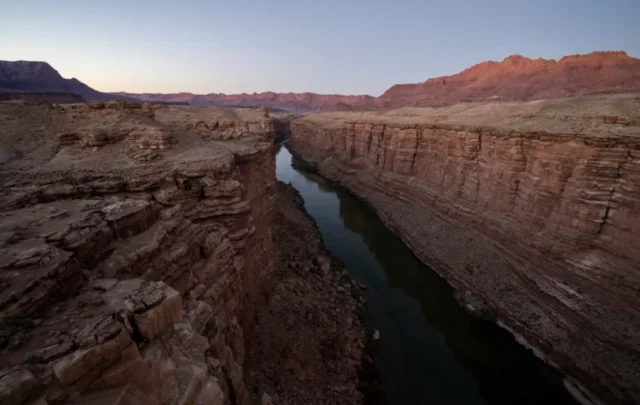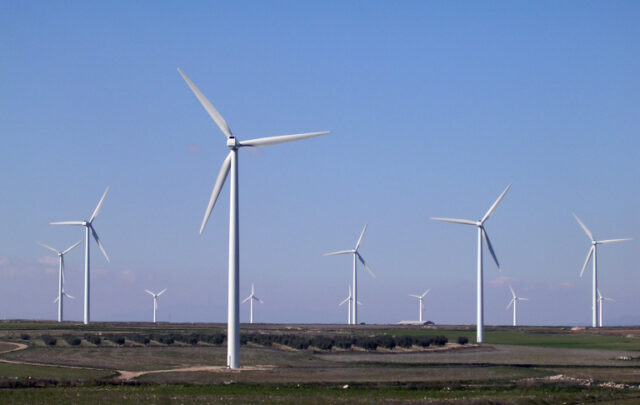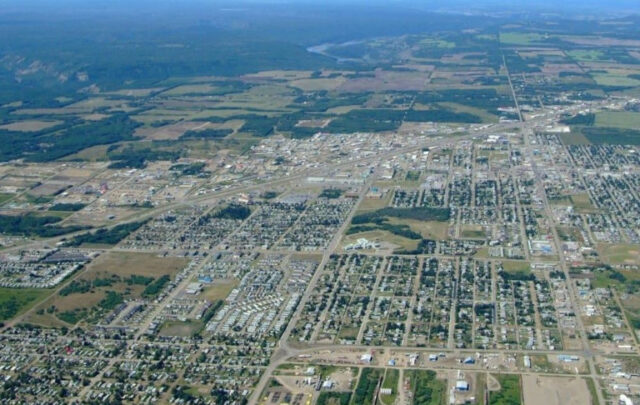Click on the headline (link) for the full text.
Many more articles are available through the Energy Bulletin homepage
Shipping costs start to crimp globalization
Larry Rohter, New York Times
… The world economy has become so integrated that shoppers find relatively few T-shirts and sneakers in Wal-Mart and Target carrying a “Made in the U.S.A.”
label. But globalization may be losing some of the inexorable economic power it had for much of the past quarter-century, even as it faces fresh challenges as a political ideology.
Cheap oil, the lubricant of quick, inexpensive transportation links across the world, may not return anytime soon, upsetting the logic of diffuse global supply chains that treat geography as a footnote in the pursuit of lower wages. Rising concern about global warming, the reaction against lost jobs in rich countries, worries about food safety and security, and the collapse of world trade talks in Geneva last week also signal that political and environmental concerns may make the calculus of globalization far more complex.
“If we think about the Wal-Mart model, it is incredibly fuel-intensive at every stage, and at every one of those stages we are now seeing an inflation of the costs for boats, trucks, cars,” said Naomi Klein, the author of “The Shock Doctrine: The Rise of Disaster Capitalism.”
“That is necessarily leading to a rethinking of this emissions-intensive model, whether the increased interest in growing foods locally, producing locally or shopping locally, and I think that’s great.”
Many economists argue that globalization will not shift into reverse even if oil prices continue their rising trend. But many see evidence that companies looking to keep prices low will have to move some production closer to consumers.
(3 August 2008)
Could globalization be going in reverse?
Alex Steffen, World Changing
… if the scenario of a reversal in globalization in fact comes to pass, there will be some economic upheaval, and that upheaval will create winners and losers — an effect that will be magnified if economic chaos occurs at the same time that the impacts of climate change begin to be felt in earnest. Some regions will plan ahead and do well. Others will suffer.
What might regional or local economic policy in a time of de-globalization and climate impacts look like? What key industries or capacities should regions be looking to foster? What sorts of infrastructure development should they subsidize? What sort of agricultural capacities and ecosystem services should they aim most to preserve? If you were planning your region’s economic future, what would you be looking to do?
One point is probably worth making in conclusion: because communications technologies are (comparatively speaking) dematerialized, a reversal in material trade patterns almost certainly would not also mean a reversal in intellectual trade patterns — rising oil prices or climate change won’t shut down the web or stop Bollywood from making movies or prevent innovators from licensing their ideas in other countries. In fact, it might be that expertise, innovation and culture will flow more freely in a world where goods flow more slowly. We might actually grow more interconnected in a world where supply chains shrank.
(4 August 2008)
A new paradigm of globalization
Sekina Joseph, UPI Asia Online
Kuala Lumpur, Malaysia —
Many books and manifestos deal with the dramatic changes that are going on in the world, and with them, the inherent difficulties and dangers humankind is presently facing. They suggest various technical measures to overcome our present predicament. Those measures are of an economic, environmental or political nature.
What is conspicuously missing in most such texts however, is the dimension of cultural and spiritual change toward another mentality that would better suit the present situation.
Of all the objects in our solar system, only Earth can support life. This is the reason we call Earth “Mother Earth.” What makes the Earth habitable? It is the right size, the right distance from the Sun, is protected from harmful solar radiation by a magnetic field, is insulated by the atmosphere, has the right temperature range and the right chemical ingredients for life, including water and carbon. The processes that shape the Earth and its environment constantly cycle elements through the planet. This cycling sustains life and leads to the formation of the mineral and energy resources that are the foundation of modern technological society.
One of today’s major challenges is violence – not only raw physical violence, but also structural and cultural violence. This type of violence is less dramatic than terrorist attacks, but it is more deadly. It kills 35,000 children a day who are starving from malnutrition. This is structural violence that emanates from money, market forces, machines and media.
(4 August 2008)
A pause to think about what ‘Globalization’ has come to mean and how else it might be interpreted.-SO





